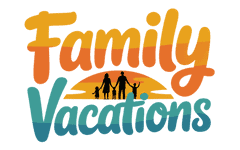Americans may speak the same language—but not the same dialect. From “bless your heart” in the South to “bubbler” up in Wisconsin, regional phrases are sprinkled across the country like linguistic seasoning. They confuse outsiders, charm locals, and sometimes spark full-blown debates about what’s “correct.” These sayings aren’t just words—they’re cultural fingerprints, shaped by history, humor, and hometown pride. A phrase that sounds sweet in one state might sound like an insult in another.
So buckle up for a cross-country tour of American lingo. You’ll laugh, scratch your head, and maybe realize your favorite hometown saying doesn’t mean what you thought it did at all.
Bless Your Heart
“Bless your heart” is a Southern staple that can be either sincere or sardonic. When uttered by a sweet, elderly Southern lady, it might mean genuine concern or sympathy. However, it can also be a polite way of saying someone is being foolish or naive.
The phrase’s dual nature often confuses outsiders, who might not detect the subtle nuances. This versatile expression showcases the charm and complexity of Southern hospitality.
Understanding the context is key to grasping its true intent, making it a fascinating example of Southern linguistic culture.
The City
For many New Yorkers, “The City” specifically refers to Manhattan, rather than the broader New York City area. Tourists might assume it means the entire city, but locals use it to denote the heart of the metropolis.
This shorthand reflects the pace and vibrancy of life in Manhattan, setting it apart from surrounding boroughs. Its significance lies in the cultural and economic epicenter that Manhattan represents.
Visitors quickly learn this distinction, offering insight into New Yorkers’ pride and identity. It’s a reminder of the special place Manhattan holds in the city’s collective consciousness.
Fixin’ To
The phrase “fixin’ to” is a common Southern expression that means someone is about to do something. This colloquialism is as much about intention as action.
While it might sound like a plan for a future event, it often indicates an imminent action, bridging the gap between thought and deed. Outsiders might misinterpret it as procrastination.
This phrase embodies the laid-back yet determined spirit of the South, emphasizing readiness mixed with a touch of leisurely charm. Understanding it requires a feel for the rhythm of Southern life.
Pop vs. Soda
In the Midwest, “pop” is the term for what others might call “soda” or “soft drink.” This linguistic divide highlights the regional variations in the United States.
Visitors to the Midwest might find themselves confused when asking for a soda, only to receive a puzzled look. The term “pop” resonates with the region’s cultural quirks.
This distinction illustrates how something as simple as a beverage can reflect deeper cultural identities. It’s a playful reminder of the diversity within American English.
Bubbler
In parts of Wisconsin and New England, a water fountain is known as a “bubbler.” This term often baffles those from other regions.
While the term might suggest something more whimsical than a simple drinking fountain, it holds a cherished place in local vocabulary. The origins of the word add to its charm.
For those unfamiliar, this phrase is a testament to regional linguistic creativity. It highlights how everyday objects can carry unique cultural significance, even if the item’s function remains the same.
The El
In Chicago, “The El” refers to the city’s elevated train system. Though other cities have similar systems, Chicagoans use this term with pride.
Outsiders might wonder what an “El” could be, missing its reference to one of the city’s most defining transportation features. It’s more than just a way to get around—it represents Chicago’s urban landscape and history.
This phrase captures the unique blend of functionality and identity, illustrating how transportation modes can shape a city’s character. It’s a piece of Chicago’s bustling life.
Heck of a
Texans often use “heck of a” to describe something impressive or noteworthy, but its meaning can be elusive to those unfamiliar with Lone Star lingo.
Whether it’s a “heck of a day” or a “heck of a meal,” the phrase conveys admiration with a touch of Texan flair. It’s an expression of enthusiasm and appreciation unique to the region.
The phrase’s versatility and warmth make it a linguistic treasure, showing how Texans celebrate life’s big and small moments with expressive language.
Yinz
In Pittsburgh, “yinz” is the local equivalent of “you all” or “y’all.” This term is a cornerstone of the Pittsburgh dialect, known as Pittsburghese.
Outsiders might find this term amusing or confusing, yet it connects Pittsburghers to their roots. It’s more than just a pronoun—it’s a marker of regional identity.
The use of “yinz” is celebrated with pride, showcasing the unique linguistic landscape of Western Pennsylvania. It’s a reminder of how language can forge community bonds.
Jeet Yet?
In the Southern United States, “Jeet yet?” is shorthand for “Did you eat yet?” This contraction reflects the region’s relaxed approach to conversation.
Outsiders might find themselves puzzled by the phrase’s brevity, but locals appreciate its efficiency and charm. It’s a friendly, welcoming inquiry that emphasizes communal dining.
This phrase illustrates the Southern emphasis on hospitality and togetherness, capturing the warmth of mealtime conversations. It’s a small but significant part of Southern culture.
Mad
In Boston, “mad” is used as an intensifier, similar to “very” or “really.” It’s a quirk of Bostonian speech that can bewilder outsiders.
Whether describing a “mad good” pizza or a “mad fun” night, the term enhances the emotion and conveys enthusiasm. It adds an energetic flair to everyday language.
This phrase reflects the city’s unique linguistic style, offering a glimpse into how Bostonians infuse emotion into their words. It’s a lively aspect of Bostonian identity.
Coke for Everything
In parts of the Southern United States, “Coke” is used to describe any soft drink, not just Coca-Cola. This practice often confounds visitors expecting a specific brand.
The term reflects the cultural influence of the Coca-Cola brand in the South, where it originated. It’s a linguistic shortcut that simplifies beverage choices.
Understanding this habit helps outsiders navigate local dining with ease, showcasing how brand names can become embedded in regional speech.
Jimmies
In New England, “jimmies” refer to what others might call sprinkles. This term is particularly endearing to locals and adds a touch of nostalgia to desserts.
Visitors may scratch their heads at this sweet terminology, but jimmies are a beloved part of New England’s culinary lexicon. They evoke childhood memories and simple pleasures.
The phrase exemplifies how regional language can add flavor and character to everyday experiences, making dessert time a bit more magical.
Lagniappe
In Louisiana, “lagniappe” means a little extra gift or bonus, usually given to customers. This Creole term reflects the generous spirit of the region.
Outsiders might not be familiar with its pronunciation or meaning, but the concept embodies Southern hospitality. Receiving a lagniappe is a delightful surprise that enhances the customer experience.
It showcases the region’s emphasis on kindness and community, adding a special touch to everyday transactions. It’s a linguistic gem within Louisiana culture.
Hella
Originating from Northern California, “hella” is used for emphasis, similar to “really” or “very.” It’s a lively addition to Californian slang.
Visitors might encounter it in expressions like “hella cool” or “hella fun,” where it adds an enthusiastic tone. Its casual flair captures the laid-back vibe of the West Coast.
This term highlights the creative expression within Californian dialect, reflecting the region’s innovative spirit and youthful energy. It’s a playful linguistic signature.
Fire
In contemporary slang, “fire” is used to describe something excellent or exciting. It’s a term that has spread across various regions, yet often starts in urban areas.
This adjective can describe anything from a song to a meal, indicating high quality or appeal. It’s a word that resonates with energy and approval.
Although widely used, its meaning might puzzle those not familiar with the latest slang trends. It’s a dynamic expression that keeps language fresh and engaging.
Packed
In Boston, when something is “packed,” it means crowded or busy. This term is particularly common in social settings, reflecting the bustling urban life.
Whether it’s a “packed” bar or concert, the phrase conveys a sense of excitement and activity. It’s a straightforward yet vivid way to describe a lively scene.
Understanding this term offers insight into Bostonian life, where social gatherings are often filled with energy and camaraderie. It’s a staple of local vernacular.

